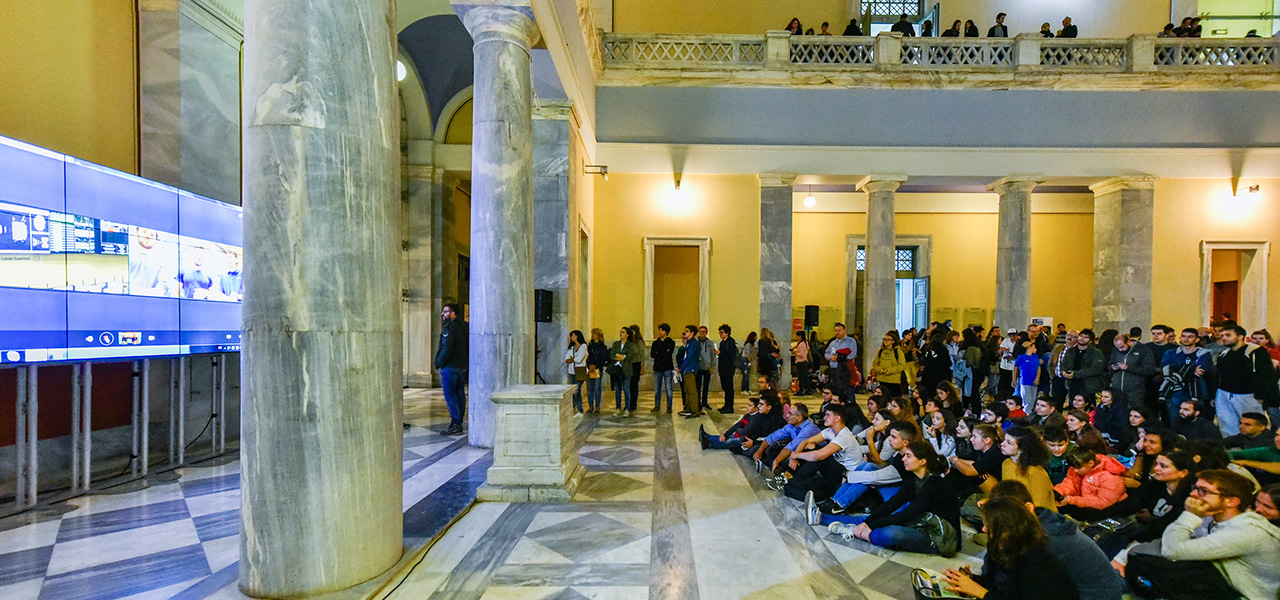What kind of architecture will we create when buildings are no longer instruments of financial accumulation? What kinds of spaces will we inhabit when cultivation, rather than extraction, is the goal? What is architecture when it is seen not as a commodity but as a collective act of cultural ritual? What materials and technologies will we build with when our decisions are based not on capitalist ideals, but on our values and imaginations? What is the architecture of degrowth? (Smith et al., 2018)
Sustainability, production, economy, as well as democracy, justice, issues of governance, and participation, all of them are topics of major importance that (should) involve design decision-making and most definitely concern the urban condition.
Frequently, theory and academic research alternate with activism or artistic practices. Thus, this year's course will explore the objectives, effectiveness, and challenges for emerging urban movements such as the Transition City Cities Network and community activism while focusing on the concepts of the theory and act of degrowth (2008; D'Alisa, Demaria, and Kallis 2014).
Planning here is therefore understood as a multifaceted process in areas of research and practices related to ecology and democracy. These include degrowth, participatory planning, political ecology, permaculture, circular economics, and others. Starting from the theoretical analysis of the concepts of "Ecology, Sustainability, Participation", the course aims to develop methodologies and strategies for redeveloping areas of the city with the goals of sustainability, self-sufficiency and a redefinition of what “quality of life” means for the inhabitants.
Methodology
We will work at Plato’s Academy and at the same time we will analyze the Belle de Mai area of the city of Marseilles. The two neighborhoods are distinguished by their deindustrialisation, citizens' initiatives, and the strategic or spontaneous adoption of cultural activities. Between these two neighborhoods, we will have the opportunity to examine issues of sustainability, ecology, and participation in real-world conditions. In this context we will attempy to set up strategies and concrete proposals.
We will work with a group of postgraduate students from the School of Architecture in Marseilles, where we will work in parallel with a postgraduate course at ENSA.M taught by Jean-Marc Huygen, and in the process we will explore multiple aspects and forms of cooperation.
Student work
The course includes bibliographical and field research, writing and presenting short papers, and collaboration with the students of the ENSA.M postgraduate course, who will also be working in the area of Plato’s Academy*. At the end of the semester, there will be work with a design component, the aspects of which will be finalized during the semester.
Bibliography
Latouche, Serge 2008. Farewell to Growth. Cambridge, UK; Malden, MA: Polity.
Alexander, Christopher. 2004. The Phenomenon of Life: The Nature of Order, Book 1. Berkeley, Calif: Routledge.
Aureli, Pier Vittorio. 2012. The Project of Autonomy: Politics and Architecture within and Against Capitalism. Reprint edition. Princeton Architectural Press.
Bollier, David. 2016. ΚΟΙΝΑ-Μία σύντομη εισαγωγή. Επιμέλεια Γιώργος Παπανικολάου. Μετάφραση Γιώργος Θεοχάρης. Βριλήσσια Αττικής: angelus novus.
Contal-Chavannes, Marie-Hélène, και Jana Revedin, επιμ. 2012. Sustainable Design II: Towards a New Ethics of Architecture and City Planning. Arles: Actes Sud.
D’Alisa, Giacomo, Federico Demaria, και Kallis, επιμ. 2014. Degrowth: A Vocabulary for a New Era. 1 edition. Abingdon, Oxon ; New York, NY: Routledge.
Heidegger, Martin. 2009. Κτιζειν, Κατοικειν, Σκεπτεσθαι. Πλέθρον.
Hopkins, Rob. 2008. The Transition Handbook: From Oil Dependency to Local Resilience. Totnes [England]: Green.
Huygen, Jean-Marc. 2008. La poubelle et l’architecte : Vers le réemploi des matériaux. ACTES SUD edition. Arles: Actes Sud.
Lengen, Johan van. 2007. The Barefoot Architect. Bolinas, Calif., U.S.A: Shelter Publications, Inc.
Norberg- Schulz, Christian. 1991. Genious Loci. Rizzoli
Petrescu, Doina, και Kim Trogal, επιμ. 2017. The Social (Re)Production of Architecture: Politics, Values and Actions in Contemporary Practice. 1 edition. New York: Routledge.
Smith, Maria, Phineas Harper, Matthew Dalziel, και Cecilie Sachs Olsen. 2018. Degrowth and its relevance to architecture.
https://akadimia-platonos.com/
https://transitionnetwork.org/
*During the course we will examine alternative prospects of a visit to Marseilles for field research in the Belle de Mai area.
Teacher
- Nikolaos Anastasopoulos, Dr, Assistant Professor (Συντονιστής)

